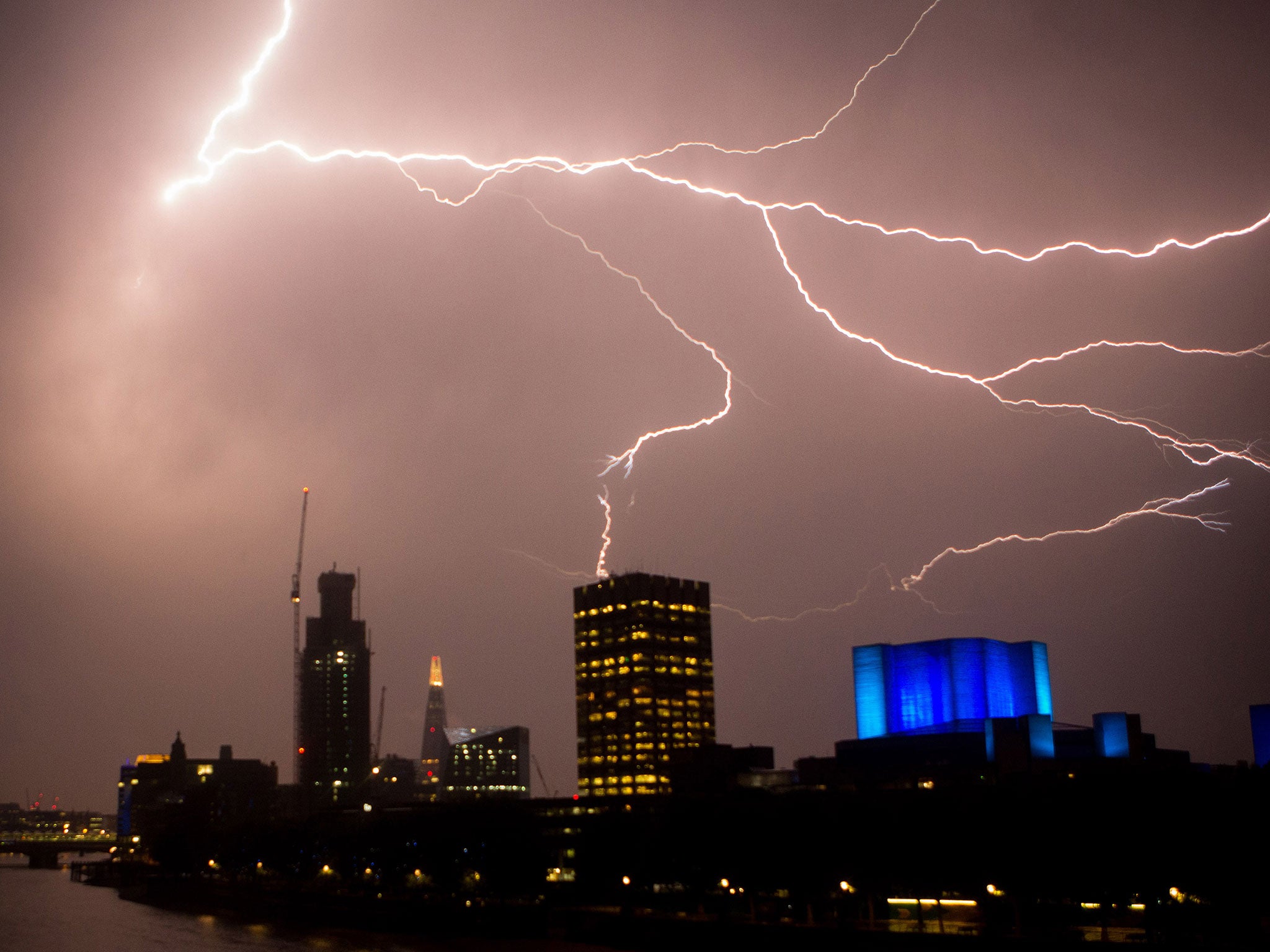Solar activity, magnetic fields and cosmic rays: scientists riddle out the recipe for increased lightning strikes in the UK
Increase in solar activity tugs the Earth's magnetic field back and forth, letting in a greater number of cosmic rays thought to trigger strikes

Scientists say they may have discovered the mechanism by which lightning is created, with increases in solar activity that bend the Earth’s magnetic field thought to let in high energy particles that trigger the strikes.
A new study by the University of Reading found that over a five year period the UK experienced 50 per cent more lightning strikes when the Earth’s magnetic field was being pushed and pulled by a particularly hectic Sun.
“We’ve discovered that the Sun’s powerful magnetic field is having a big influence on UK lightning rates,” said lead author Dr Matt Owens.
“The Sun’s magnetic field is like a bar magnet, so as the Sun rotates its magnetic field alternately points toward and away from the Earth, pulling the Earth’s own magnetic field one way and then another.”
Usually the Earth’s magnetic field acts like an insulating shield against the high energy particles that streak across the Universe. These galactic cosmic rays mainly originate from outside the Solar System and are thought to be the result of a number of cosmic phenomena including exploding stars.
As these particles streak through storms on Earth they ionize the atmosphere, giving a tiny thread of air a positive or negative charge that acts as a conduit for the lightning.
Although this explanation for the moment at which lightning is created is still only a theory, the scientists are sure that there is a link between movements in the Sun’s magnetic fields and increased strikes on Earth – a finding that could help the accuracy of weather forecasts, even predicting lightning weeks ahead.
Although the study only looked at lightning activity between 2001 and 2006 in the UK because the UK keeps particularly meticulous records, the scientists think that if their theory is true, while strikes increased over Britain they decreased over Canada or Siberia.
“From our results, we propose that galactic cosmic rays are channelled to different locations around the globe, which can trigger lightning in already charged-up thunderclouds,” said Dr Owen.
“The changes to our magnetic field could also make thunderstorms more likely by acting like an extra battery in the atmospheric electric circuit, helping to further "charge up" clouds.”
Join our commenting forum
Join thought-provoking conversations, follow other Independent readers and see their replies
Comments
Bookmark popover
Removed from bookmarks